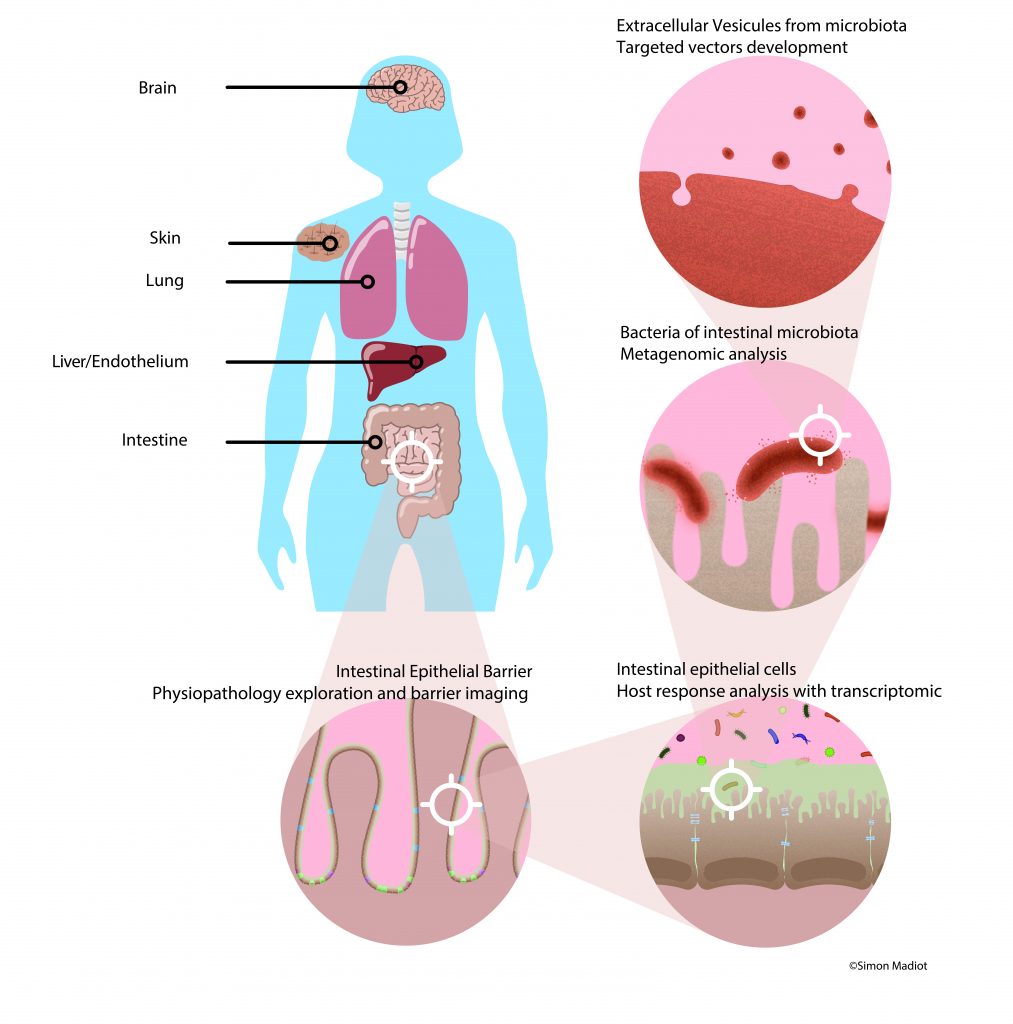Chronic inflammatory diseases are constantly on the rise. They increased by 41.6% between 2005 and 2015 in France and affected some 12 to 20 million people. In light of these figures, treating but, above all, preventing the onset of these diseases has become a major issue for society. Especially since they represent 65% of healthcare spending.
We will now characterize these diseases. They often affect several organs and persist over time. In these diseases, alterations to the organs’ external walls (or barriers) is observed as is the presence of inflammation and increased permeability. An ecosystem of microorganisms, called microbiota, exists in the immediate barrier micro-environment. This research project focuses on understanding the interactions between organ barriers, host cells (nerve, immune or other) and microbiota in chronic diseases.
Challenges
Chronic diseases are complex and have not yet revealed all their secrets :
- Which biological mechanisms are involved in the development of the disease?
- Do any biomarkers exist which could anticipate disease evolution or response to treatment?
- Is microbiota or the molecules it produces responsible for barrier dysfunctions?
- Can new therapeutic applications based on microbiota use and its nutritional and/or pharmacological modulation be considered?
To address these issues, over twenty researchers in 9 laboratories in the Pays de la Loire region have decided to pool their expertise together. For this project, the partners are focusing on the following pathologies:
- Allergies / Asthma
- Liver diseases: Non-alcoholic steatohepatitis (NASH)
- Chronic inflammatory bowel diseases (Crohn’s Disease and Ulcerative Colitis)
- Gut-brain axis disease GBA (neurodevelopmental/neurodegenerative and psychiatric disorders)

